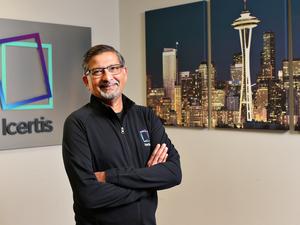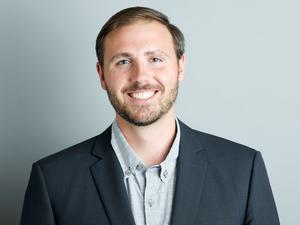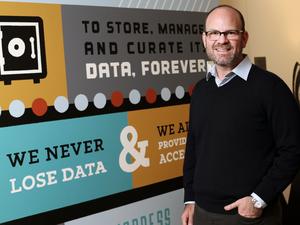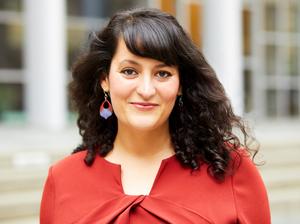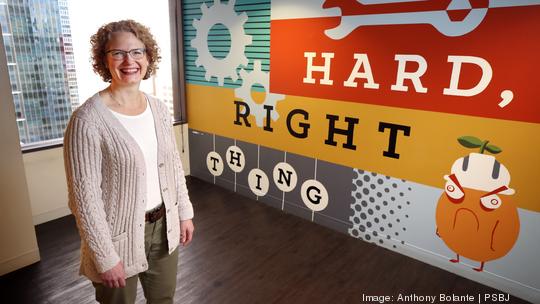
Molly Brown was planning to operate on brains before changing to computers.
Brown, now the vice president of engineering at Seattle-based data management company Qumulo, entered college to become a neurosurgeon. When the memorization and competition became overwhelming, Brown was drawn to a classmate’s engineering courses and decided to make the switch, eventually landing in the computer science department.
“I’ve always liked math and puzzles, and that’s a lot of what you do in computer science, and that problem solving aspect is what always caught my interest,” Brown said.
After almost 15 years at Microsoft, Brown ended up at Qumulo in the early days of the company and has been there for more than eight years. She now leads the engineering team at Qumulo, which raised $125 million in 2020 and surpassed a $1.2 billion value.
Qumulo offers data storage and management for clients like the San Francisco 49ers, EDI and Carilion Clinic. The company has more than 20 open roles listed on its website in product management and engineering alone, and Qumulo is broadening its reach in the Asia-Pacific region.
The Business Journal spoke with Brown about her role, her career path and her reading habits.
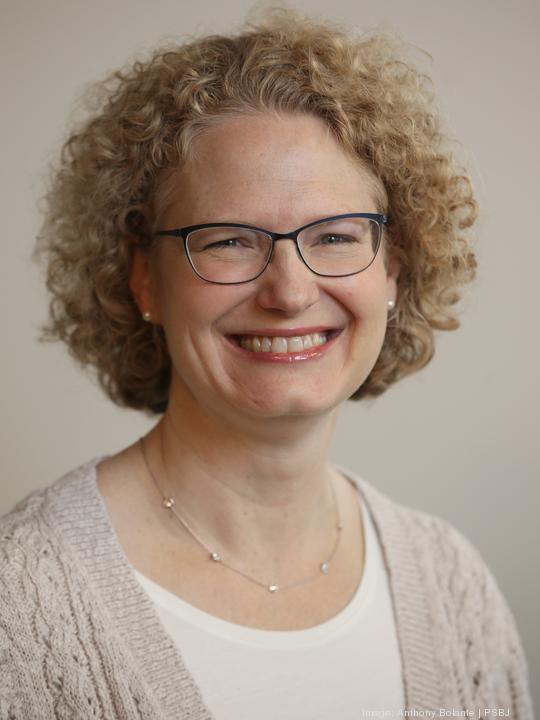
- Job: Vice president of engineering at Qumulo
- Age: 48
- Hometown: St. Louis
- Current residence: Laurelhurst
- Education: Undergrad at the University of Virginia; master's in computer science at the University of Washington
- Interests outside of work: “My husband is an avid biker, and he brings me along on that journey. I’m the mother of two teenage sons, so I am an avid sports fan as I watch them play soccer, volleyball or ultimate frisbee. I love to bake. Entertaining our puppy (a black lab, almost two years old, named Charlie).”
A day in the life of Molly Brown
- 5:30 a.m.: Wake up
- 6:30 a.m.: Make sure kids are getting moving
- 6:45 a.m.: Walk the dog
- 7:15 a.m.: Morning high school carpool
- 8 a.m.: At the office
- 8 a.m. to 12 p.m.: Meetings on various topics
- 12 to 1 p.m.: Lunch, catch up on things
- 1 to 5 p.m.: Meetings on various topics
- 5 to 6 p.m.: Wrap up the day
- 6 p.m.: Head home
- 7 p.m.: Dinner with family
- 8:30 p.m.: Evening walk
- 10 p.m.: Go to sleep (or at least be in bed with a book)
What does your role at Qumulo entail?
I run our approximately 100-person engineering team that is a mix of software developers, hardware engineers, site-reliability engineers, front-end engineers, agile coaches and technical content developers. Our focus is building great software to bring value and delight to our customers. I help with all aspects of that, from hiring to work scoping, and some areas I still touch and provide technical guidance.
You’ve been with the company for a long time now. What has changed over the years?
When I started, the company was maybe just shy of 50 employees, largely based in Seattle. We didn’t really have any formal sales teams yet. They started a few months later. The company was about two years old when I started, so it was engineering at the core. You knew everybody. You saw everybody, every day around the espresso machine.
How did Qumulo start getting clients?
We had just put [out] our first server appliance, and our "customer" down the street was a nonprofit who was willing to be our guinea pig. They were not giving us any money, but they were willing to run our software and give us great feedback. That got the ball rolling. Now we have close to 700 customers.
What lessons did you take away from your time at Microsoft?
I worked in Windows the full time I was there, largely in different areas related to local and remote file system capabilities in the Windows suite of products. I really learned how to ship software that has to run. There are few products that run in as broad of applications as Windows does, from embedded devices to home computers to servers. [That's] the mentality you bring to writing software, particularly at the file system layer because that’s where you’re storing customers’ data, that needs to work.
What stood out as different when you joined a growing startup?
I was familiar with the enterprise storage space, but what you can do when you are a small company and you are still growing your customer base is definitely a lot different. Your consideration set is a lot different when you are trying to get from zero to 10 customers than when you have many millions of customers who are already relying on your software. Here at Qumulo we release our software every two weeks.
You’ve been at two employers for more than 20 years now, which is unusual in this day and age. Why have you been so committed?
I like digging in deep to problems, and I like the ability to take that knowledge of the complex domain and apply it to other related areas. I could say I was lucky. I landed in two good spots that always had good coworkers with me. For me personally, that’s an important aspect of my work-life, and I’ve always had interesting problems to solve. I haven’t stayed with a strong intention of, “Let me stay put” ... as long as I’m challenged and as long as I enjoy the work and enjoy the people I’m working with, I don’t seek out changing.
If you weren’t in tech, what would you be doing?
Medicine was always the piece that intrigued me the most. There is a bit of similarity. The part about medicine that I found most interesting was that diagnostic piece, which has a bit of similarity to debugging computers. Unfortunately, humans you can’t ask to repeat the failure mode. It doesn’t quite work that way.
What is one thing most people don’t know about you?
I’m an avid reader of a lot of different types of things. I’m always reading a lot of what you call business self-help books and leadership books, aspects of that. Occasionally I throw in deep technical topics. I like to either do audiobooks or read a lot on history. I throw in a good lightweight fiction book. A good mystery is always a good complement to that. I like the constant exposure to lots of new ideas.
